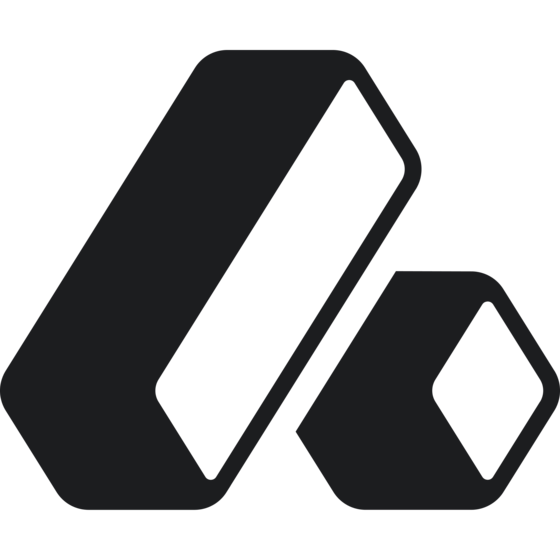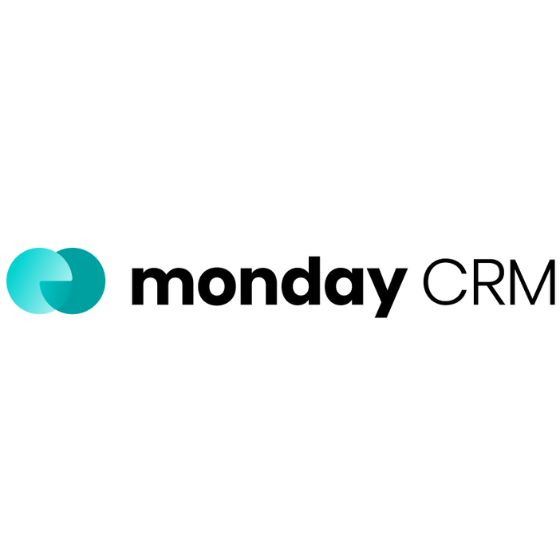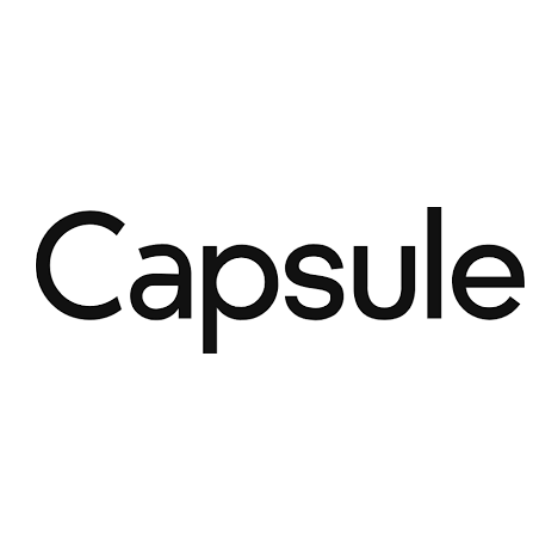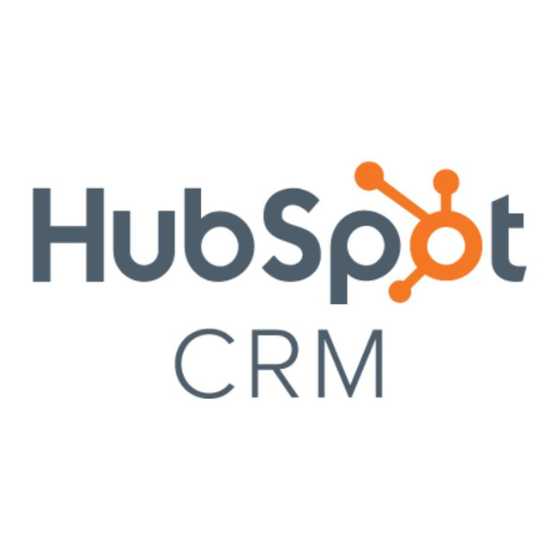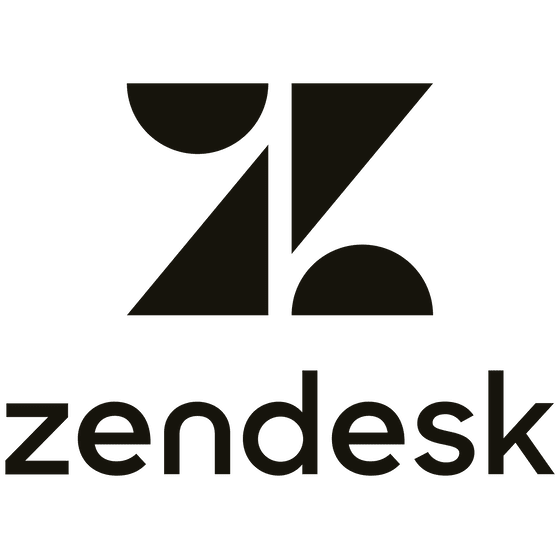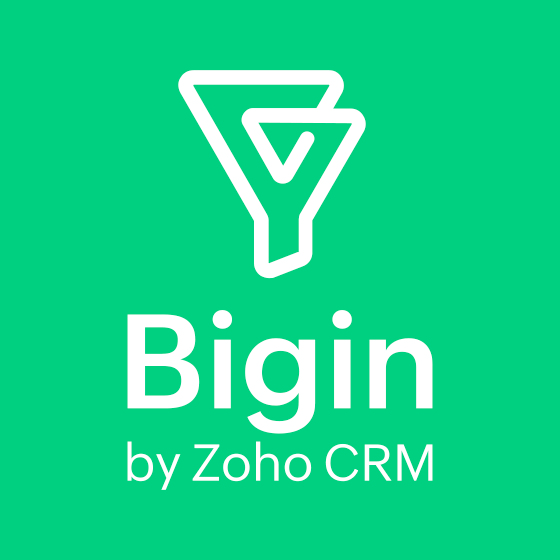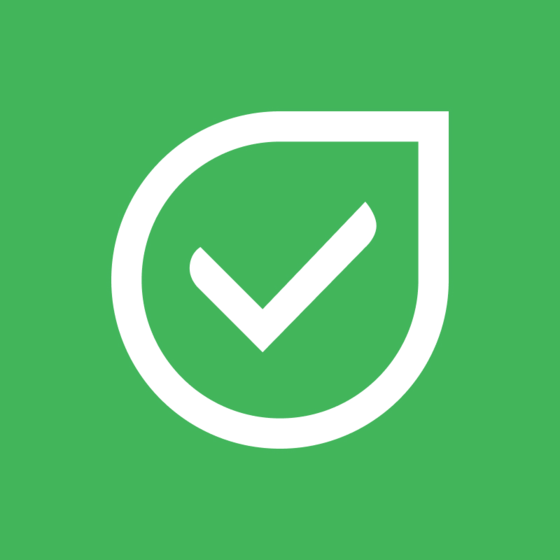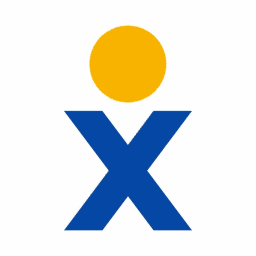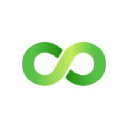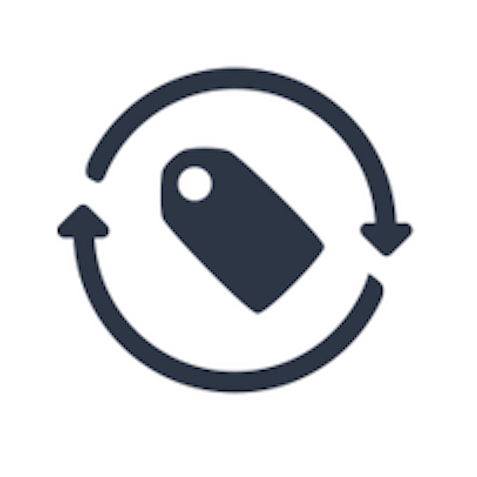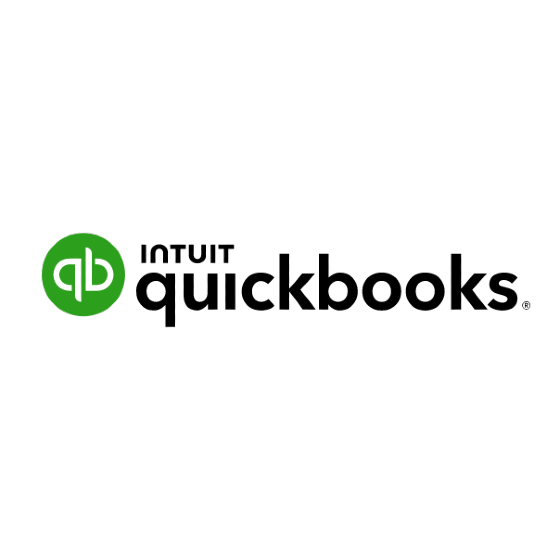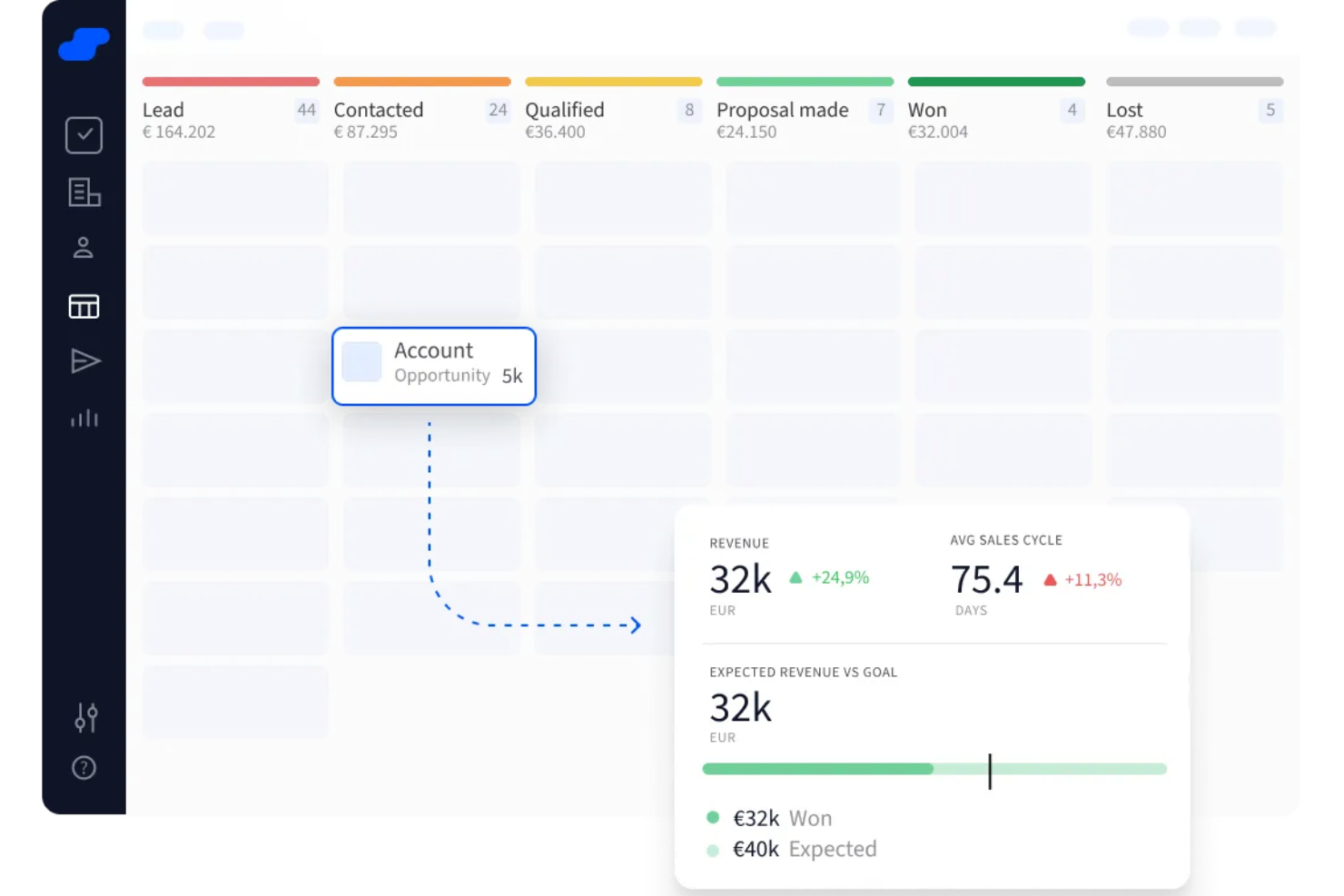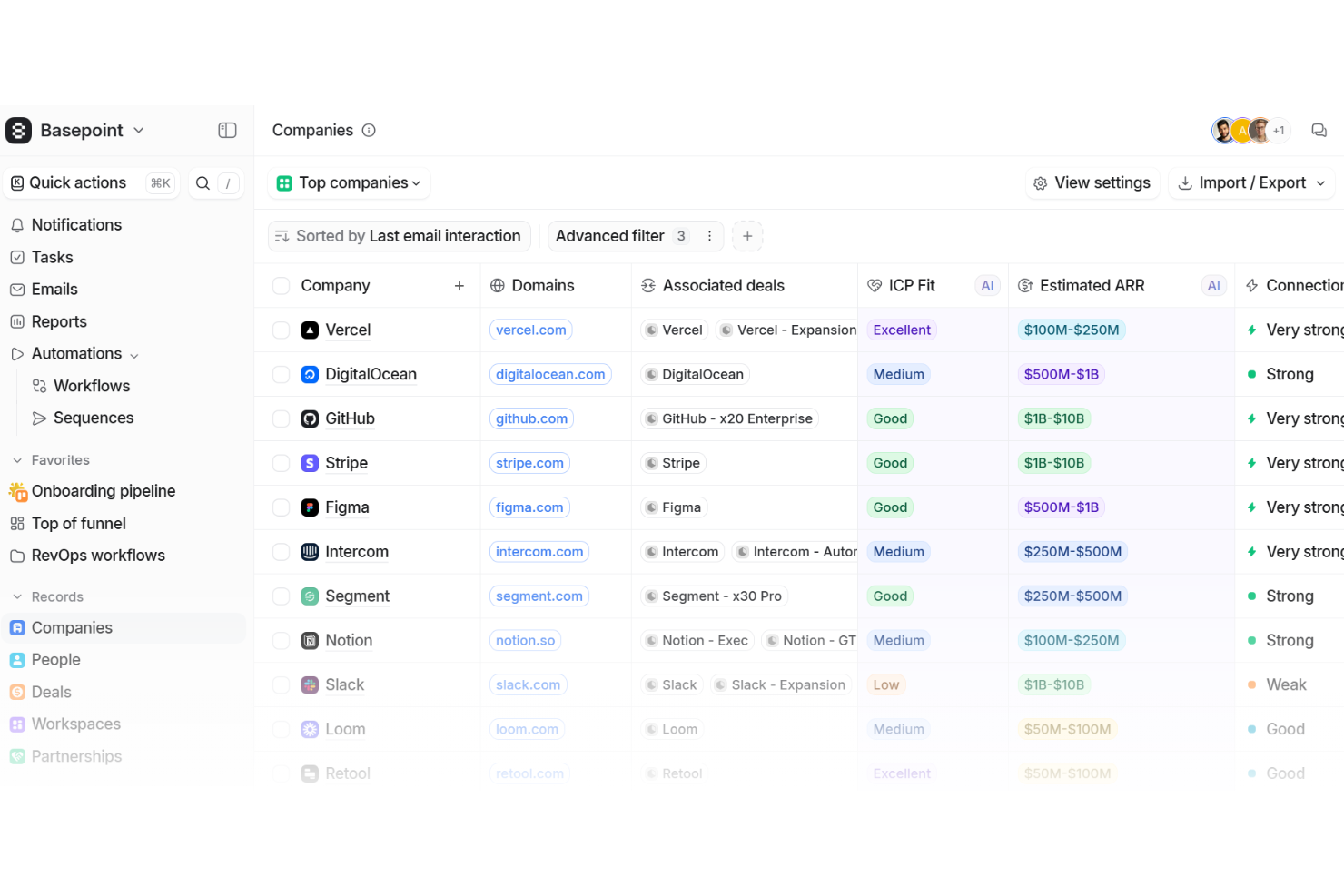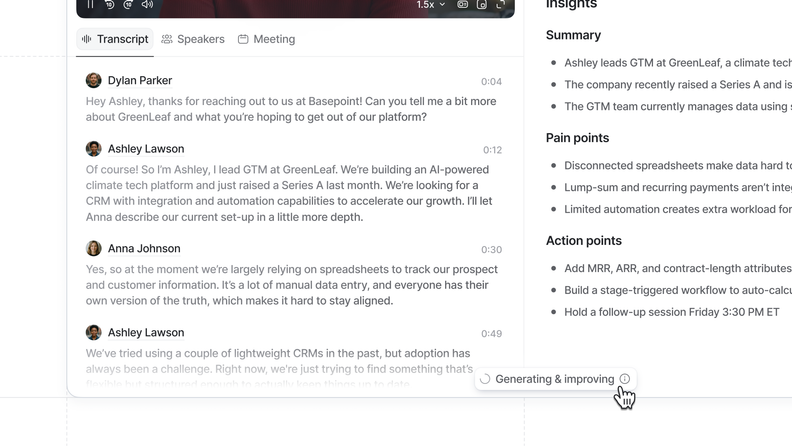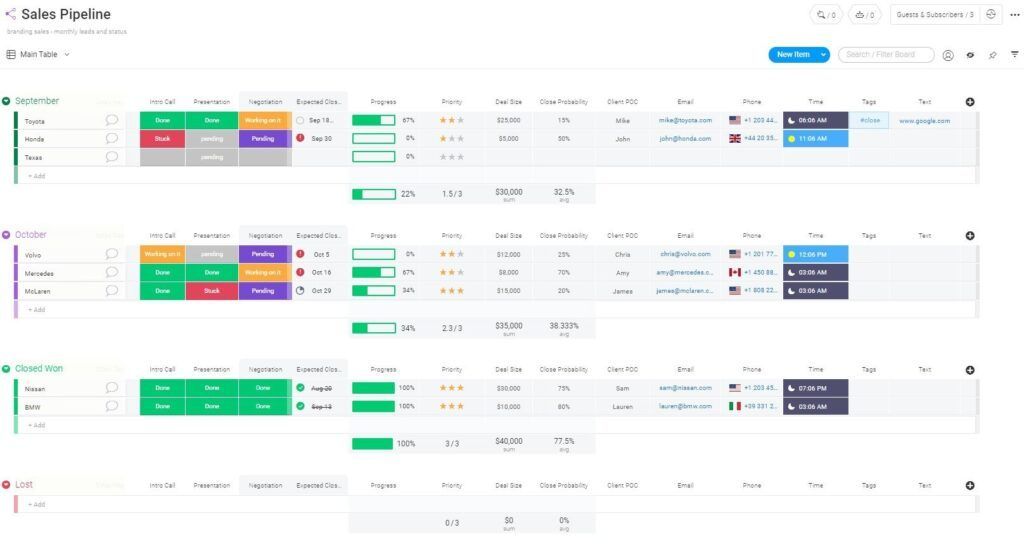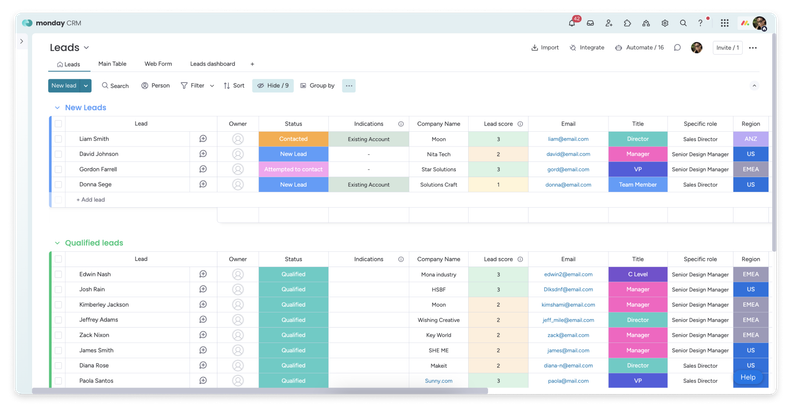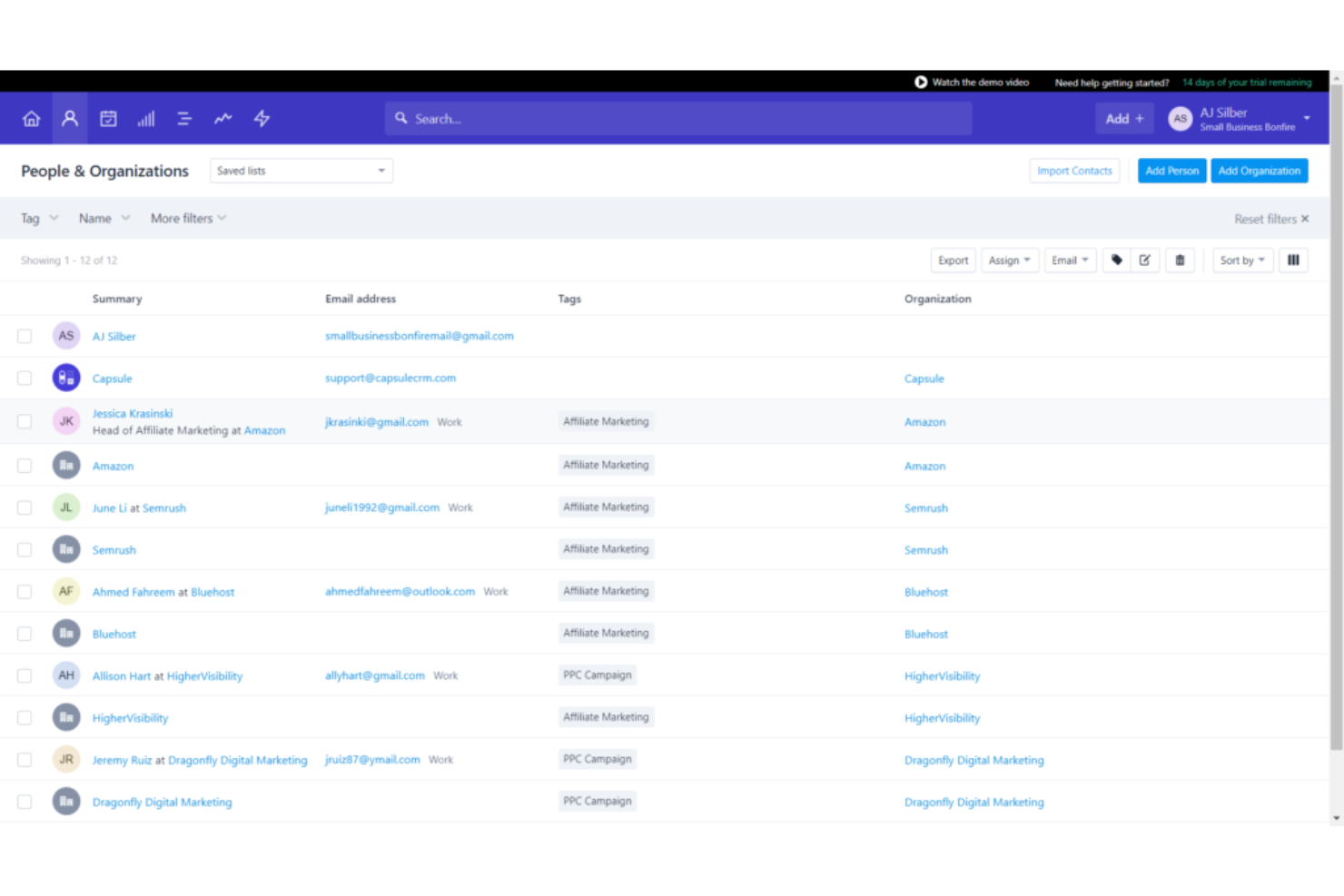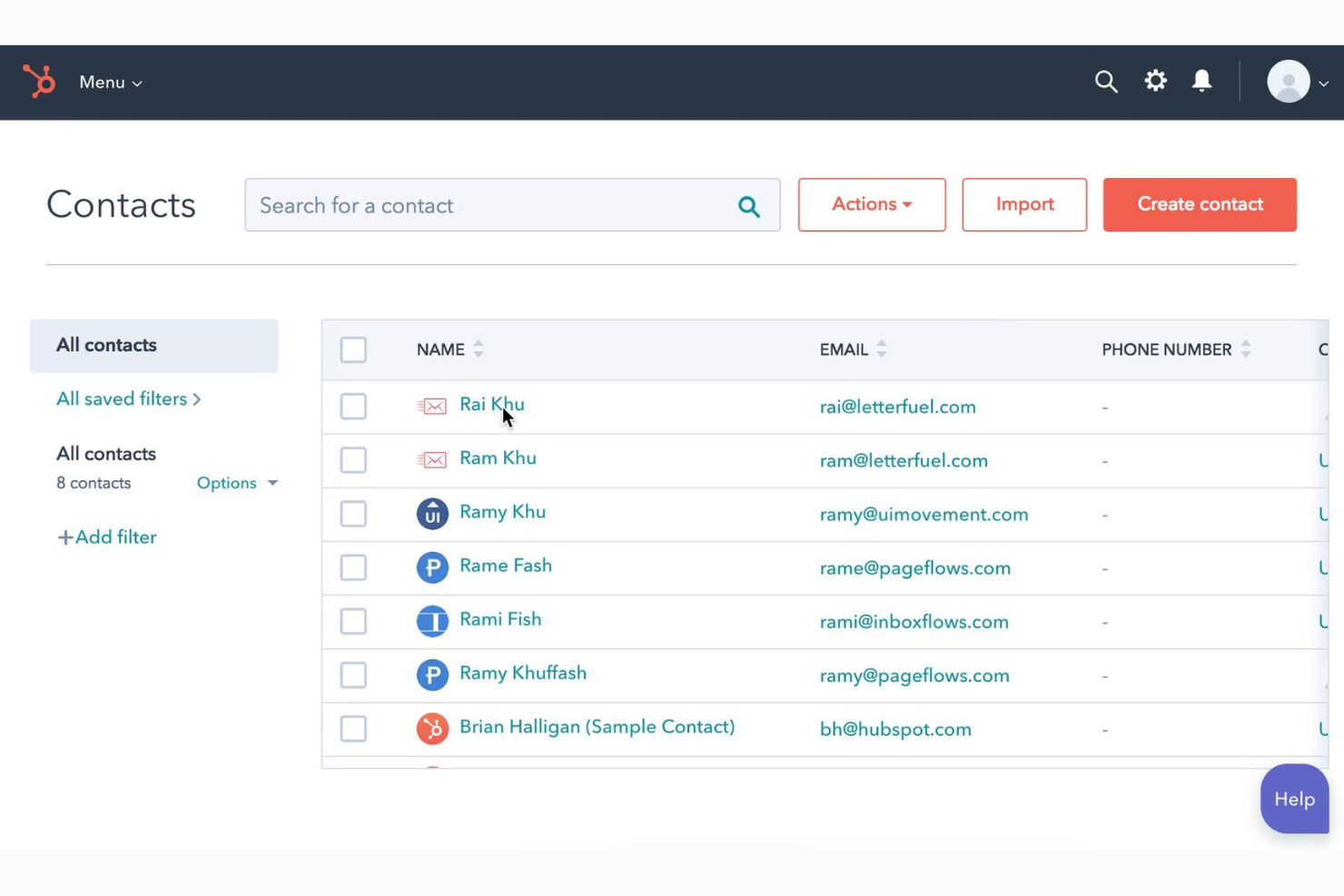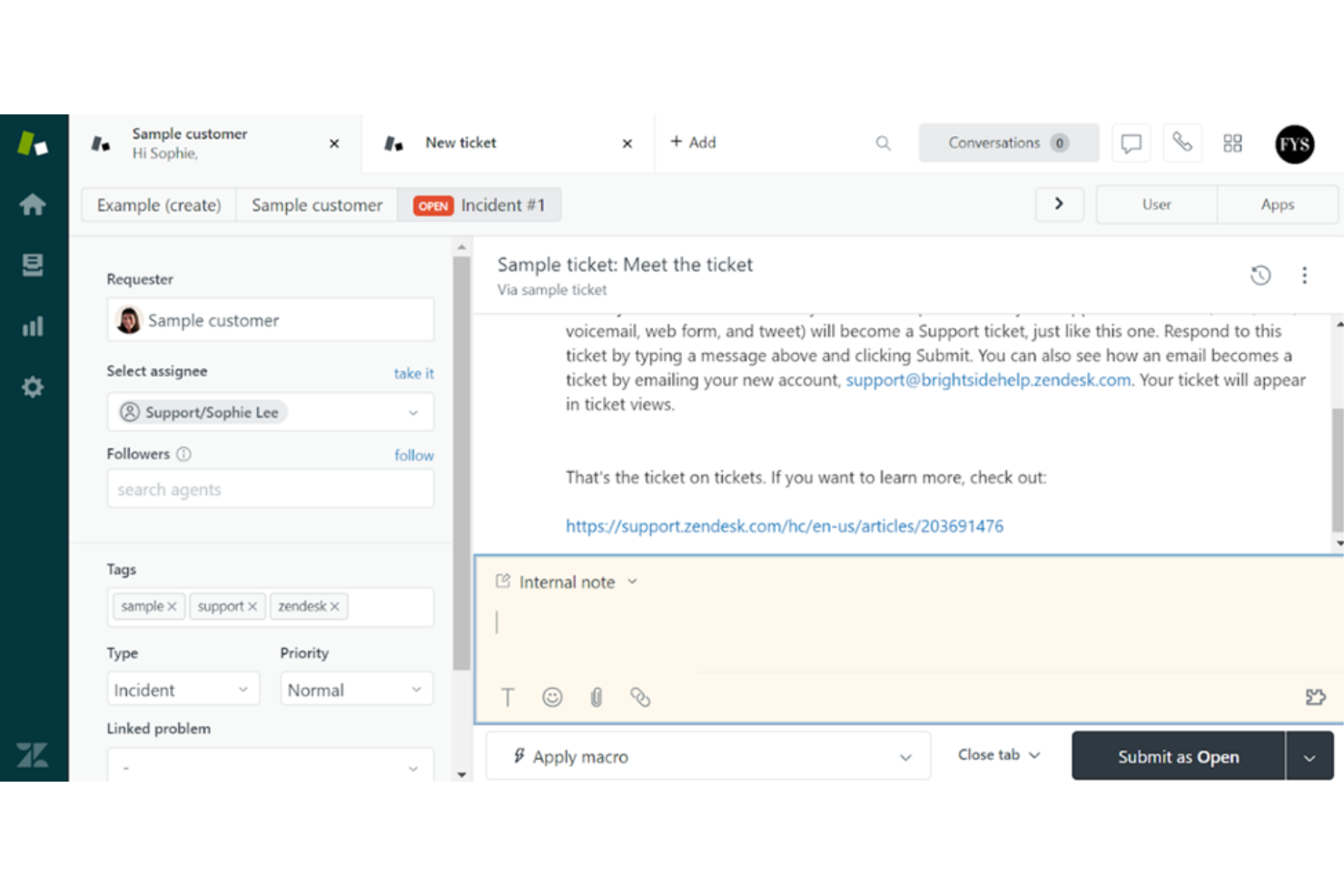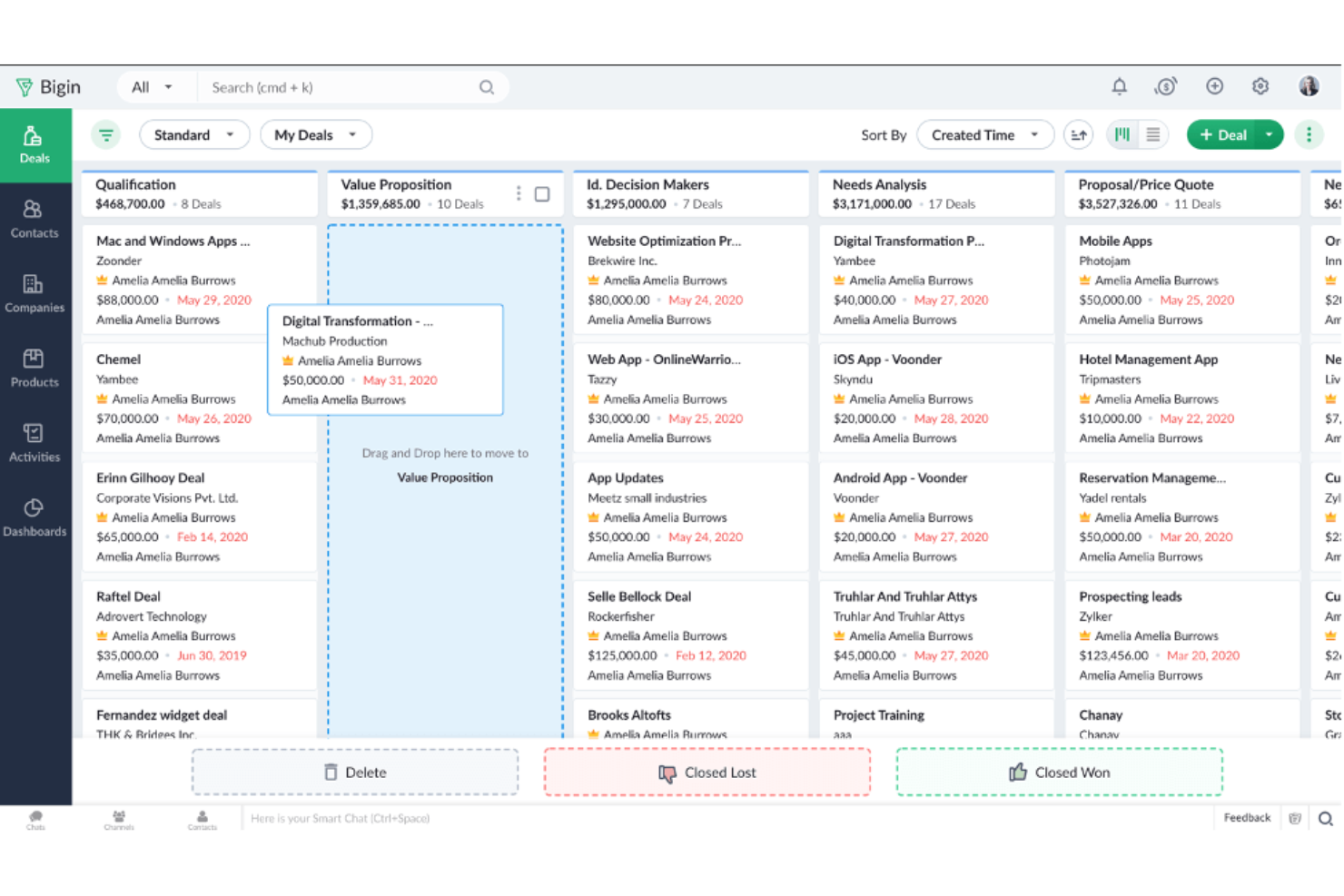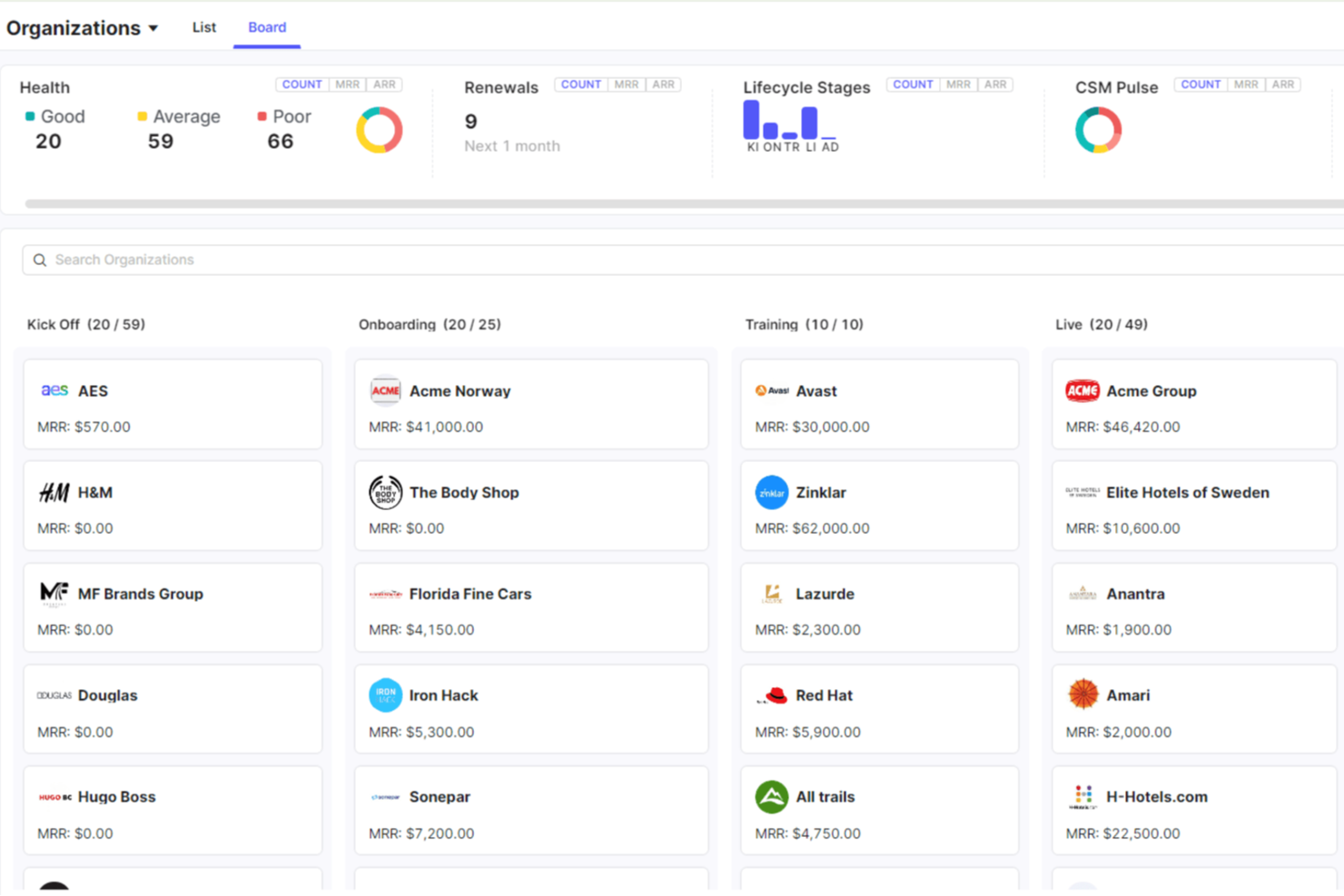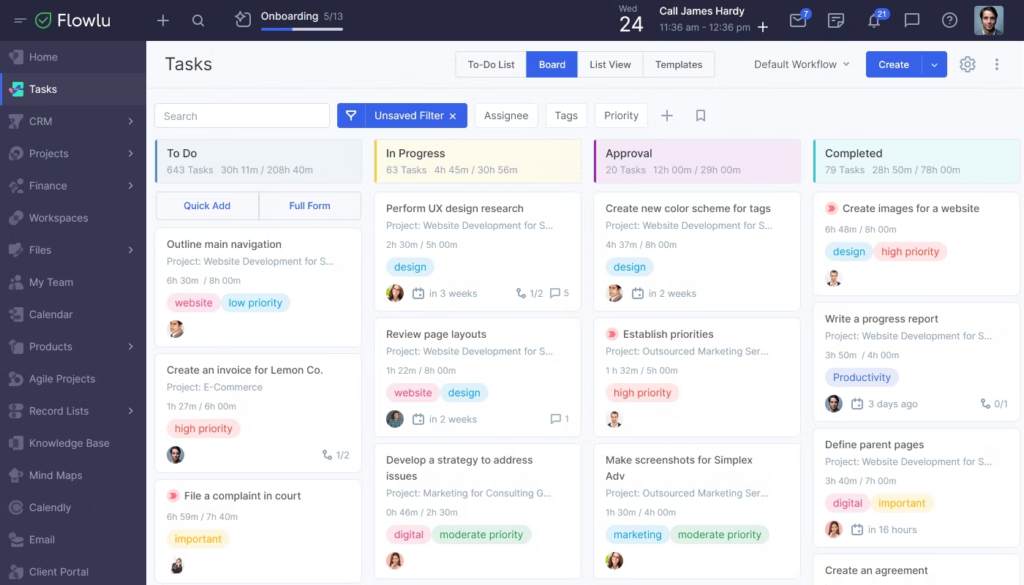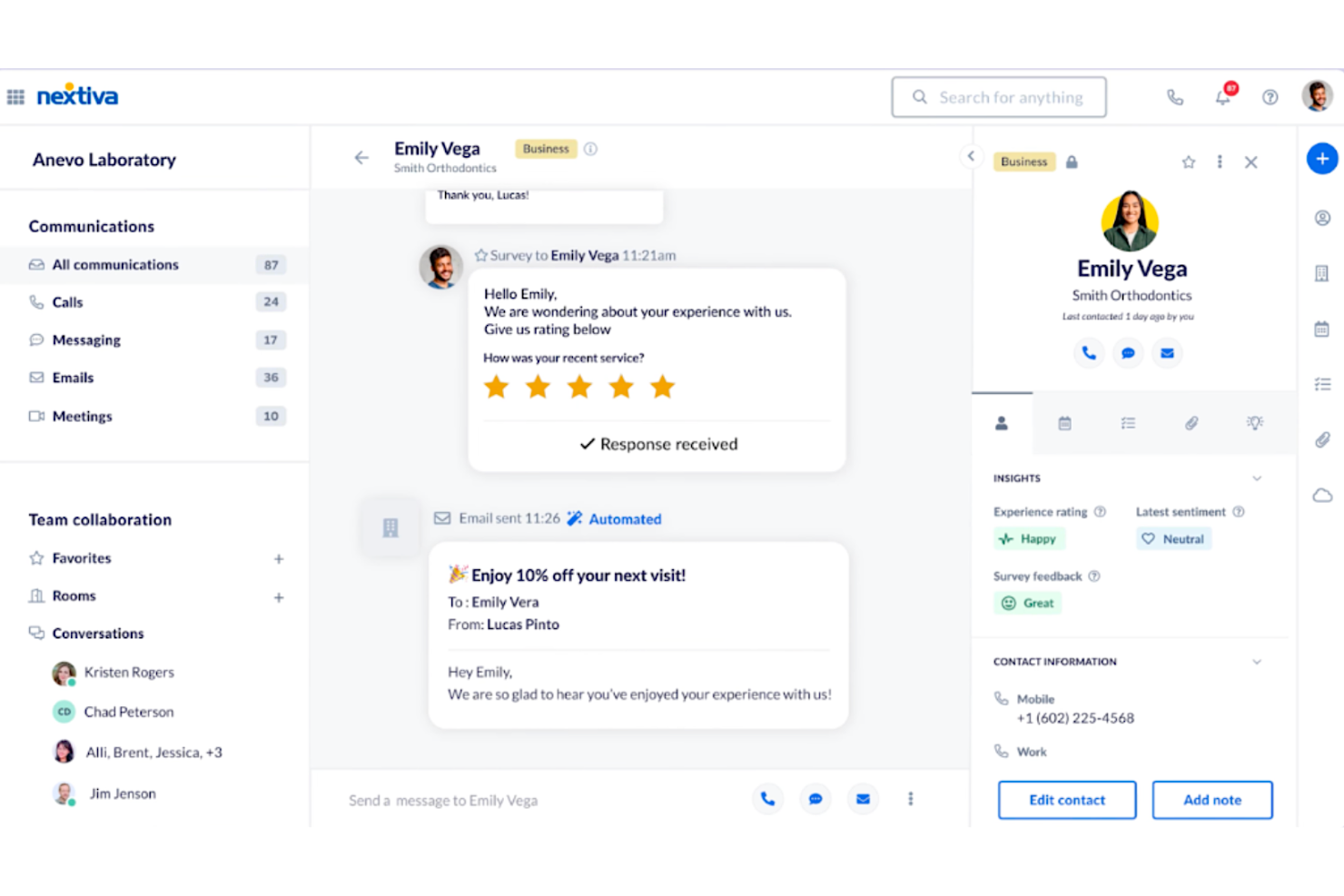10 Best Customer Database Software Shortlist
Here's my pick of the 10 best software from the 28 tools reviewed.
With so many different customer database software available, figuring out which is right for you is tough. You know you want to effectively track customer interactions, personalize customer experiences, and streamline your communication strategies but need to figure out which tool is best. I've got you! In this post I'll help make your choice easy, sharing my personal experiences using dozens of different customer database tools with various teams and projects, with my picks of the best customer database software.
Why Trust Our Software Reviews
Best Customer Database Software Summary
This comparison chart summarizes pricing details for my top customer database software selections to help you find the best one for your budget and business needs.
| Tool | Best For | Trial Info | Price | ||
|---|---|---|---|---|---|
| 1 | Best for automatic customer data capture | 30-day free trial | From $29/user/month (billed annually) | Website | |
| 2 | Best for flexible databases | 14-day free trial | From $29/user/month (billed annually) | Website | |
| 3 | Best for customizable workflows | 14-day free trial | From $12/user/month (billed annually, min. 3 seats) | Website | |
| 4 | Best for integrations and ease of use | 14-day free trial + free plan available | From $18/user/month (billed annually) | Website | |
| 5 | Best customer database and CRM with free plan | Free plan available | From $15/user/month (billed annually) | Website | |
| 6 | Best for managing multichannel customer queries | 14-day free trial | From $49/user/month | Website | |
| 7 | Best customer database for small business | 15-day free trial + free plan available | From $7/user/month (billed annually) | Website | |
| 8 | Best for detailed customer health scores | Free demo available | Pricing upon request | Website | |
| 9 | Best for small to medium-sized businesses | 14-day free trial | From $29/user/month (billed annually) | Website | |
| 10 | Best for tracking customer communication history and sentiment | Free demo available | From $25/user/month (billed annually) | Website |
-

Expedite Commerce
Visit Website -

Prisync
Visit WebsiteThis is an aggregated rating for this tool including ratings from Crozdesk users and ratings from other sites.4.7 -

QuickBooks Online
Visit WebsiteThis is an aggregated rating for this tool including ratings from Crozdesk users and ratings from other sites.4
Best Customer Database Software Reviews
Below are my detailed summaries of the best customer database software that made it onto my shortlist. My reviews offer a detailed look at the key features, pros & cons, integrations, and ideal use cases of each tool to help you find the best one for you.
Salesflare is a CRM built for small and medium-sized B2B businesses that want to manage customer data without drowning in admin. If your team works in sales or client-facing roles and juggles lots of relationships, this tool takes the manual work out of keeping a customer database updated.
Why I Picked Salesflare: Salesflare stands out because it automates the creation of your customer database—capturing emails, meetings, signatures, and web activity to build rich profiles for contacts and companies without manual effort. This means you don’t spend time typing in details; the tool quietly keeps your database current in the background.
It also helps you manage your opportunities with a visual sales pipeline, where you can drag deals through stages to see exactly what’s next. Meanwhile, it sends follow‑up reminders, tracks email opens and web activity, and even suggests who you should reach out to next—so your customer database is actionable and always fresh.
Salesflare Standout Features and Integrations
Features include smart data enrichment that automatically fills in contact and company details based on email signatures and public data, keeping your customer database detailed without lifting a finger. It also offers lead‑scoring that alerts you when it’s time to engage, helping you prioritize your outreach.
Integrations include Google Workspace, Intercom, MailChimp, QuickBooks Online, Slack, Stripe, Shopify, and Calendly.
Pros and cons
Pros:
- Provides helpful reminders and follow-up suggestions
- Offers strong email tracking and notifications
- Automatically captures customer data from multiple sources
Cons:
- Limited options for bulk editing records
- Lacks advanced features for account management
Attio is an AI-native customer database software designed to give your team a single source of truth for every relationship and interaction. It organizes people, companies, deals, and custom records into a flexible structure that mirrors how your business operates.
Why I picked Attio: I picked Attio because its adaptive data model lets you shape your database around your unique business needs. Instead of being stuck with rigid templates, you can design custom objects like invoices, projects, or partnerships alongside standard records like people and companies. This flexibility means your database evolves as your business grows, giving you confidence that no detail is left out.
I also like its ability to unify scattered information into one connected system. By syncing product usage, billing, and support data directly into customer records, you can see the full story of a customer’s journey in one place.
Attio Standout features & integrations:
Features include an automation engine that lets you set up rules for updating records, routing leads, or flagging accounts for follow-up. Its AI assistant helps with tasks like prospecting and identifying key stakeholders so you can keep your database enriched with minimal effort. Reporting tools also give you real-time insights into your customer base, helping you track engagement, revenue, and health signals with customizable dashboards.
Integrations include Vercel, DigitalOcean, GitHub, Stripe, Figma, Intercom, Segment, Notion, Slack, Loom, Retool, and Customer.io.
Pros and cons
Pros:
- Centralizes data from multiple sources
- Customizable database objects fit business needs
- AI helps enrich customer records
Cons:
- Heavy customization may overwhelm users
- No built-in phone calling feature
New Product Updates from Attio
Attio Now Supports Transcript Regeneration
Attio now enables users to regenerate call transcripts for accuracy and missing content recovery. For more information, visit Attio's official site.
monday Sales CRM is a fully customizable tool designed to centralize client communication, automate sales processes, and provide a comprehensive overview of sales deals. Its unique selling proposition is its extensive customization capabilities, including flexible column types, detailed subitems, and customizable views, which support the creation of tailored workflows to meet the specific needs of businesses.
Why I picked monday Sales CRM: I chose monday Sales CRM because of its high customizability and user-friendly interface, which allows for a clear view of sales pipelines and centralizes client interactions. Its distinction lies in the ability to manage sales activities from pre-sales to post-sales efficiently, offering comprehensive data visualization and a low-code/no-code environment that caters to customizable workflows.
What makes monday Sales CRM stand out is its trust within a global customer base of over 180,000 users and its suitability for a wide range of sales-related activities. I believe monday Sales CRM is best for customizable workflows due to its extensive automation features, customizable views, and robust sorting capabilities, which empower users to tailor the platform to their specific needs without requiring extensive technical knowledge.
monday Sales CRM Standout Features
Features include intuitive technology that supports your company’s success, whether you’re developing a custom dashboard for specific communication requirements or trying to analyze customer data with visualization tools. By using the simple trigger and action templates from within the platform, you can quickly build many time-saving automations. You can also implement notification systems to help eliminate unnecessary meetings by alerting team members when a task or project is ready for further action.
Integrations include over 200 third-party applications, such as Salesforce, Mailchimp, Aircall, Pandadoc, and Twilio.
Pros and cons
Pros:
- 24/7 customer support
- Easy to develop and implement automations
- Unlimited boards to organize clients, projects, and processes
Cons:
- All plans have a three-user minimum
- No customizable reports
New Product Updates from monday CRM
monday CRM's AI-Powered Lead Scoring Boosts Sales Efficiency
monday CRM introduces AI-Powered Lead Scoring to prioritize high-value prospects through data-driven insights. For more information, visit monday CRM's official site.
Capsule CRM offers a streamlined approach to managing customer relationships, sales pipelines, and tasks in one intuitive platform, making it easier for businesses of all sizes to keep track of their customer interactions and improve their sales processes.
Why I Picked Capsule CRM: As customer database software, Capsule CRM excels in user-friendly design, easy integration with existing tools, and providing a comprehensive view of customer interactions, helping businesses to better understand their customer base and tailor their marketing and sales strategies accordingly.
What makes Capsule CRM unique is its integrated task management system that seamlessly connects tasks with sales opportunities, contacts, and cases. This integration allows users to manage follow-ups, deadlines, and project milestones directly within the context of their CRM activities. The task management system supports categorization, prioritization, and scheduling, making it easier for teams to collaborate and stay on top of all customer-related activities.
Capsule CRM Standout Features and Integrations
Features include "Tracks" and "Tags" that offer a nuanced approach to managing contacts and tasks. "Tracks" are pre-defined sequences of tasks that guide users through a process, ensuring consistency and efficiency in activities such as onboarding new clients or following up on leads. "Tags" allow for dynamic categorization of contacts, opportunities, and cases, providing a flexible, easy-to-use system for segmentation that can adapt to the evolving needs of a business.
Integrations include Google Workspace (Gmail, Docs, Calendar), Microsoft Office 365, Mailchimp, Xero, QuickBooks, Slack, FreshBooks, and more using Zapier.
Pros and cons
Pros:
- Send and receive emails right in Capsule CRM
- Integrated calendar tasks management
- Intuitive and easy to use
Cons:
- More digital marketing integration welcomed
- Can't drag-and-drop data tags or fields
HubSpot CRM provides a customer database alongside other CRM features like email marketing tools, deal tracking, and meeting scheduling. It offers a well-rounded solution for sales, support, and marketing teams alike, and helps facilitate cross-team collaboration.
Why I picked HubSpot CRM: This solution earned its spot on my list not just because it offers a comprehensive feature set, but also because it's available as a freemium offer. The free-forever plan comes with all the baseline functionalities you'd expect from a CRM, and notably allows for up to 1,000,000 contact records and unlimited customer data.
Should your team require more advanced features like customization and detailed analytics, a 14-day free trial period allows you to see what you're missing in the paid plan.
HubSpot CRM Standout Features and Integrations
Features include contact, deal, and task management; email tracking and engagement notifications; email templates and scheduling; document sharing; meeting scheduling; live chat; and sales quotes.
Integrations include Gmail, Outlook, Google Calendar, Office 365, and Slack. A paid Zapier subscription unlocks additional integrations.
Pros and cons
Pros:
- Tools for sales, marketing, and support
- Scalable to growing business needs
- Solid feature set in the freemium plan
Cons:
- Lacks some advanced features
- May offer broader functionality than needed
Zendesk is a customer service platform designed to help your team manage interactions across channels and keep customer data in one place. It acts as a hub for tickets, messages, and records so your support team can deliver consistent experiences. You’ll have the tools to track, organize, and respond without losing context.
Why I picked Zendesk:
You can manage email, phone, chat, and social media messages in a single ticketing system. This gives your team a full view of each customer’s history so responses feel personal and informed. Analytics and dashboards highlight trends in satisfaction and engagement, helping you see where improvements are needed. You also get SLA management to meet service commitments and automation to handle repetitive work.
Standout features & integrations:
Features include a self-service knowledge base that reduces ticket volume, SLA management that sets clear response targets, and automation tools that move routine work off your team’s plate. You can also customize workflows so they match the way your team operates.
Integrations include Slack, HubSpot, Marketo, Twilio, Zapier, Jira, Trello, Hootsuite, Mailchimp, PandaDoc, Dialpad, and Zoho Analytics.
Pros and cons
Pros:
- SLA tools for service tracking
- Analytics to spot customer trends
- Multichannel ticketing in one place
Cons:
- Analytics may feel complex
- Setup can take extra time
Bigin by Zoho CRM is a customer relationship management platform built for small businesses. It trims down the full Zoho CRM into a leaner version so your team can focus on the tools you’ll actually use. You can keep all your customer records in one place, manage communications, and set up a simple sales pipeline without the extra complexity.
Why I picked Bigin by Zoho CRM:
You get a central database that fits the way your business works, with custom fields and modules to match your needs. You can bring in your data from spreadsheets or capture new details through custom forms, then export it when needed. Multi-channel communication tools let you manage email, phone, and social media in one place. You can also build a sales pipeline that tracks leads step by step and uses triggers to move people through stages automatically. A custom reporting dashboard keeps you updated on how well your team is doing.
Standout features & integrations:
Features include email templates that save you time when reaching out to customers, workflows that automate repetitive tasks, and a pipeline view that shows exactly where every deal stands. You also get built-in telephony so you can place and log calls directly from the system.
Integrations include Zoho Books, Zoho Invoice, Google Workspace, Microsoft 365, Mailchimp, Zapier, Trello, Slack, DocuSign, and QuickBooks.
Pros and cons
Pros:
- Simple pipeline tracking view
- Custom fields to match your process
- Easy setup for small teams
Cons:
- Few advanced automation options
- Limited features compared to Zoho CRM
Velaris is an AI-powered customer success platform designed to help your team manage and improve customer relationships. It brings customer data together from different sources into one place so you can make decisions based on clear insights. You can track customer actions in real time and keep every department aligned on what matters most.
Why I picked Velaris:
You get detailed customer health scores that show you how satisfied your customers are across touchpoints like CRMs, service desks, and marketing tools. You can watch interactions in real time, making it easier for your team to act quickly when something changes. Predictive analytics and machine learning highlight churn risks and upsell opportunities so you can take action before it’s too late. With everything in one interface, your team spends less time chasing data and more time supporting customers.
Standout features & integrations:
Features include predictive analytics that study past behaviors to forecast customer needs, machine learning that spots patterns for churn or upsell, and real-time monitoring that gives your team visibility into ongoing interactions. You can also share insights across teams so everyone stays aligned.
Integrations include Slack, Microsoft Teams, Intercom, MailChimp, Outlook, Google Drive, HubSpot, Jira, and Salesforce.
Pros and cons
Pros:
- Machine learning for customer behavior patterns
- Predictive insights for churn and upsells
- Real-time tracking across customer touchpoints
Cons:
- Data consolidation may require prep work
- Setup can feel time consuming
Flowlu is a business management platform for small to medium-sized businesses across different industries. It allows businesses to store and manage customer-related data, such as contact information, communication history, leads and opportunity data, and purchase history.
Why I picked Flowlu: Flowlu is client database software that enables end-to-end project management. In addition to contact management features, the software allows users to create and manage projects, assign tasks, set deadlines, track progress, and collaborate with team members. The financial and accounting tools help handle billing, invoicing, and expense tracking.
Flowlu also provides reporting and analytics capabilities, allowing businesses to gain insights into their projects, sales, and financial performance.
Flowlu Standout Features and Integrations
Features include a client portal, project management, task tracking, CRM (customer relationship management), invoicing, sales management tools, team collaboration, and financial management. These features provide a holistic solution for businesses to manage their projects, clients, and finances.
Integrations are available with online payment gateways, email software, telephony, CRM, calendar, and other apps. These software include PayPal, Stripe, Gmail, Twilio, Mailchimp, JivoChat, Calendly, Google Calendar, Zendesk, and Slack.
Pros and cons
Pros:
- Includes time-saving features like automated invoicing
- Simple and visually intuitive interface
- Integrates with Slack
Cons:
- Limited customization options
- Limited integrations
Nextiva
Best for tracking customer communication history and sentiment
Nextiva is a communication and customer experience platform that brings together voice, video, chat, and collaboration tools in one place. It helps your team manage customer interactions across multiple channels while keeping all the details connected. With its customer database functions, you get a full picture of every customer relationship.
Why I picked Nextiva:
I like that Nextiva gives you a complete view of every conversation through threaded timelines that pull in email, phone, chat, and even social media. You can see sentiment trends with built-in analysis, which helps you understand how your customers feel over time. Automated workflows can trigger tasks from customer data, so your team can stay proactive. This mix of history, context, and sentiment tracking makes it stand out if you want more than just basic records.
Standout features & integrations:
Features include threaded conversations that combine all customer interactions in one timeline, AI-driven sentiment tracking that shows how customers feel across touchpoints, and automated workflows that let you act on customer data without extra steps. These features keep your team informed and ready to respond.
Integrations include Zoho CRM, Zendesk, Microsoft Outlook, Salesforce, HubSpot, Microsoft Teams, Slack, ServiceNow, QuickBooks, SugarCRM, NetSuite, Oracle Sales Cloud, RingCentral, and Mailchimp.
Pros and cons
Pros:
- Automates tasks based on customer data
- Tracks customer sentiment over time
- Combines all communication into one view
Cons:
- Can be costly for small teams
- Some automation needs fine-tuning
Other Customer Database Software
Here are some additional customer database software options that didn’t make it onto my shortlist, but are still worth checking out:
- Really Simple Systems
Customer database software for B2B businesses
- Keap
Customer database software for ease of use
- Thryv
For small business management
- AllClients
Customer database software for non-technical users
- Insightly
For robust project management capabilities
- Salesforce Service Cloud
For a 360-degree view of customers' information
- Scoro
Customer database software for consolidating customer data
- Maximizer CRM
Customer database software for advanced analytics
- Reflect CRM
On-premise customer database software
- People.ai
For data-driven sales and marketing
- CRM Creatio
Customer database software for enterprises and large organizations
- Copper
Customer database software for Google Workspace users
- Accelo
Customer database for service-based businesses
- Bitrix24
For collaboration and communication
- Airtable
Database software with project management features
- Freshdesk
For helpdesk management
- Agile CRM
For integrating sales, marketing, and customer support processes
- Connectivity
For integrating customer data across multiple systems
Customer Database Software Selection Criteria
When selecting the best customer database software to include in this list, I considered common buyer needs and pain points like data integration challenges and ease of use. I also used the following framework to keep my evaluation structured and fair:
Core Functionality (25% of total score)
To be considered for inclusion in this list, each solution had to fulfill these common use cases:
- Manage contact information
- Track customer interactions
- Automate sales tasks
- Generate sales reports
- Support lead management
Additional Standout Features (25% of total score)
To help further narrow down the competition, I also looked for unique features, such as:
- Predictive analytics
- Customizable dashboards
- AI-driven insights
- Multi-channel communication
- Workflow automation
Usability (10% of total score)
To get a sense of the usability of each system, I considered the following:
- Intuitive interface design
- Easy navigation
- Minimal learning curve
- Responsive design for mobile use
- Clear and concise instructions
Onboarding (10% of total score)
To evaluate the onboarding experience for each platform, I considered the following:
- Availability of training videos
- Interactive product tours
- Access to webinars and tutorials
- Use of templates for quick setup
- Supportive chatbots for guidance
Customer Support (10% of total score)
To assess each software provider’s customer support services, I considered the following:
- 24/7 availability
- Multiple support channels
- Quick response times
- Knowledgeable support staff
- Access to community forums
Value For Money (10% of total score)
To evaluate the value for money of each platform, I considered the following:
- Competitive pricing
- Range of features offered
- Flexible pricing plans
- No hidden fees
- Discounts for annual billing
Customer Reviews (10% of total score)
To get a sense of overall customer satisfaction, I considered the following when reading customer reviews:
- Positive feedback on functionality
- Praise for ease of use
- Comments on reliability
- Customer service satisfaction
- Overall value perception
How to Choose Customer Database Software
It’s easy to get bogged down in long feature lists and complex pricing structures. To help you stay focused as you work through your unique software selection process, here’s a checklist of factors to keep in mind:
| Factor | What to Consider |
|---|---|
| Scalability | Will the software grow with your business? Consider if it can handle an increasing number of users and data volume without a drop in performance. |
| Integrations | Does it connect with your existing tools? Check if it supports integrations with your current systems like email, CRM, and marketing platforms. |
| Customizability | Can you tailor the software to fit your needs? Look for options that allow you to customize fields, views, and workflows to match your processes. |
| Ease of use | Is the software intuitive for your team? Evaluate the interface and navigation to ensure that it doesn't require extensive training to operate effectively. |
| Implementation and onboarding | How long will it take to get up and running? Assess the time and resources needed for setup, data migration, and training your team. |
| Cost | Does the pricing fit your budget? Compare the cost to the features offered and check for any additional fees or long-term contracts. |
| Security safeguards | How does the software protect your data? Verify encryption standards, data backup processes, and compliance with relevant security regulations. |
| Support availability | Is help available when you need it? Consider the availability of customer support, including hours, channels, and response times. |
Trends in Customer Database Software for 2025
Companies are increasingly seeking customer database software solutions that not only manage customer data efficiently but also provide actionable insights, enhance customer engagement, and streamline revenue operations. Here's an overview of the current trends in customer database software:
Integration and Interoperability:
- Seamless Integration with Other Business Systems: There's a growing demand for customer database software that integrates effortlessly with sales, marketing, and service platforms, providing a unified view of customer interactions across different touchpoints.
- API-First Design: The trend towards API-first architecture signifies that customer database software is becoming more adaptable and capable of integrating with a myriad ecosystem components.
Data-Driven Decision Making:
- Advanced Analytics and Reporting: Modern customer database software is incorporating sophisticated analytics tools to transform data into insights, enabling businesses to make informed strategic decisions.
- Predictive Analytics: Utilizing AI and machine learning to forecast customer behavior and sales trends is becoming a standard feature, aiding businesses in proactive decision-making.
Innovative Features:
- AI and Machine Learning Capabilities: The integration of AI to automate data entry, clean-up processes, and even predict customer needs is becoming more prevalent, setting new standards for software functionality.
- Real-Time Data Processing: The ability to process and analyze data in real time is increasingly important, enabling businesses to respond quickly to emerging trends and customer needs.
Shifting Focus:
- From Data Storage to Data Activation: The focus is shifting from merely storing customer data to activating it through engagement tools, community building, and personalized experiences.
- Decline of On-Premises Solutions: Cloud-based solutions are becoming the norm, with on-premises systems seen as less flexible and more challenging to maintain and scale.
Businesses should select customer database software that not only addresses their current needs but is also scalable and forward-looking, incorporating AI and real-time data capabilities to stay competitive in the evolving digital landscape.
What Is Customer Database Software?
Customer database software is a tool that helps you store and organize all your customer information in one place. Sales teams, marketers, and support reps use it to track contact details, purchase history, and conversations, so they don’t lose important info or let leads slip through the cracks. It makes finding customer data quick and easy, which helps you give people faster, more personal service.
Features
When selecting customer database software, keep an eye out for the following key features:
- Contact management: Organizes all customer information in one place, making it easy to access and update.
- Sales pipeline tracking: Visualizes sales stages, helping teams manage and prioritize deals effectively.
- Automation tools: Automates repetitive tasks like follow-ups, saving time and reducing errors.
- Customizable fields: Allows you to tailor the software to fit your specific business processes and needs.
- Integration capabilities: Connects with other tools, ensuring seamless data flow across systems.
- Reporting and analytics: Provides insights into sales performance and customer interactions, aiding in data-driven decision-making.
- Mobile access: Enables team members to access customer data on the go, ensuring productivity anywhere.
- Security measures: Protects customer data with encryption and compliance with security standards.
- User-friendly interface: Ensures ease of use with intuitive navigation and design.
- Real-time alerts: Keeps you informed of important updates and changes, allowing for prompt action.
Benefits
Implementing customer database software provides several benefits for your team and your business. Here are a few you can look forward to:
- Improved organization: Centralizes customer data, making it easy to manage and retrieve information when needed.
- Enhanced productivity: Automates routine tasks, freeing up time for your team to focus on more strategic activities.
- Better decision-making: Offers reporting and analytics tools that provide insights into customer behavior and sales trends.
- Increased sales efficiency: Tracks sales pipelines, helping your team prioritize deals and close them faster.
- Stronger customer relationships: Facilitates better interaction tracking, ensuring that all customer communications are consistent and informed.
- Scalability: Adapts to your growing business needs, supporting an increasing volume of data and users.
- Data security: Protects sensitive customer information with robust encryption and compliance with industry standards.
Costs & Pricing
Selecting customer database software requires an understanding of the various pricing models and plans available. Costs vary based on features, team size, add-ons, and more. The table below summarizes common plans, their average prices, and typical features included in customer database software solutions:
Plan Comparison Table for Customer Database Software
| Plan Type | Average Price | Common Features |
|---|---|---|
| Free Plan | $0 | Basic contact management, limited storage, and email support. |
| Personal Plan | $5-$25/user/month | Enhanced contact management, basic reporting, email integration, and mobile access. |
| Business Plan | $30-$60/user/month | Advanced reporting, automation tools, custom fields, multiple integrations, and collaboration features. |
| Enterprise Plan | $70-$150/user/month | Customizable dashboards, advanced security, dedicated support, unlimited storage, and comprehensive analytics. |
Customer Database Software FAQs
Here are some answers to common questions about customer database software:
What are the types of customer database software?
Customer database software is pivotal for organizations across industries to efficiently manage and analyze customer information, fostering better relationships and driving strategic decisions. There are several types of customer database software available, each catering to different needs and operational scales:
- Contact Management Software: Focuses primarily on storing basic customer contact information. Ideal for small businesses or individual entrepreneurs who need to manage their contacts effectively without requiring advanced CRM functionalities.
- CRM (Customer Relationship Management) Software: Offers comprehensive tools beyond contact management, including sales, marketing, and customer service interactions. It is designed for businesses of all sizes that aim to nurture their customer relationships comprehensively.
- Small Business CRM Software: Tailored for smaller scale operations, this software provides essential CRM features like contact management, interaction tracking, and basic analytics in a user-friendly package without overwhelming users with complex functionalities.
- Enterprise CRM Software: Equipped with advanced features and integrations, this type caters to large organizations with extensive customer management needs. It often includes sophisticated analytics, automation, and customization capabilities to support complex business processes.
- Vertical CRM Software: Specifically designed for certain industries (e.g., real estate, finance, healthcare), offering customized features that address unique challenges and workflows of particular sectors.
- Operational CRM Software: Focuses on streamlining daily operations involving customer interactions. It includes automation of marketing, sales, and service processes, ensuring efficient operation flows.
- Analytical CRM Software: Emphasizes collecting, analyzing, and leveraging customer data to make informed business decisions. It supports businesses in understanding customer behaviors, preferences, and trends.
- Collaborative CRM Software: Aims to improve communication and collaboration among internal teams and with external stakeholders. It ensures consistent customer experiences across various touchpoints by sharing customer insights across departments.
Understanding the specific needs and objectives of your business is crucial when selecting the right type of customer database software. Each type provides distinct features and functionalities, so it’s important to choose one that aligns with your business goals and operational requirements to maximize the benefits of your investment.
How do you maintain accurate and consistent customer data?
To keep your data accurate, set clear data entry standards and perform regular audits. Encourage your team to verify information before adding it to the system. Use built-in tools or scripts to detect duplicates and incomplete records so your database stays reliable over time.
How often should customer data be reviewed or updated?
Review your database at least quarterly to correct errors and remove inactive contacts. Set automated reminders or workflows to prompt updates after major interactions. Keeping data fresh improves communication accuracy and reporting quality.
What’s Next:
If you're in the process of researching customer database software, connect with a SoftwareSelect advisor for free recommendations.
You fill out a form and have a quick chat where they get into the specifics of your needs. Then you'll get a shortlist of software to review. They'll even support you through the entire buying process, including price negotiations.


